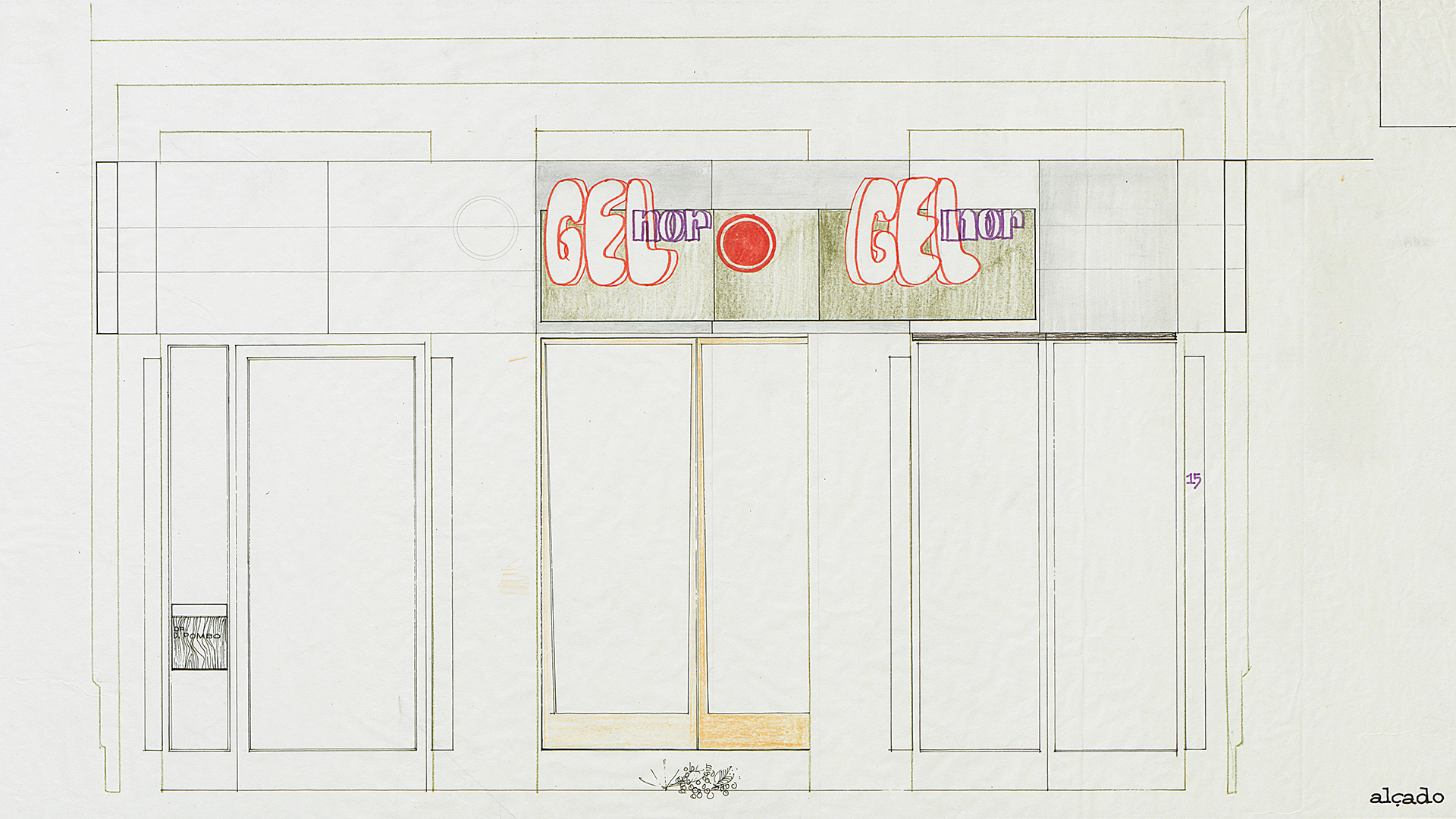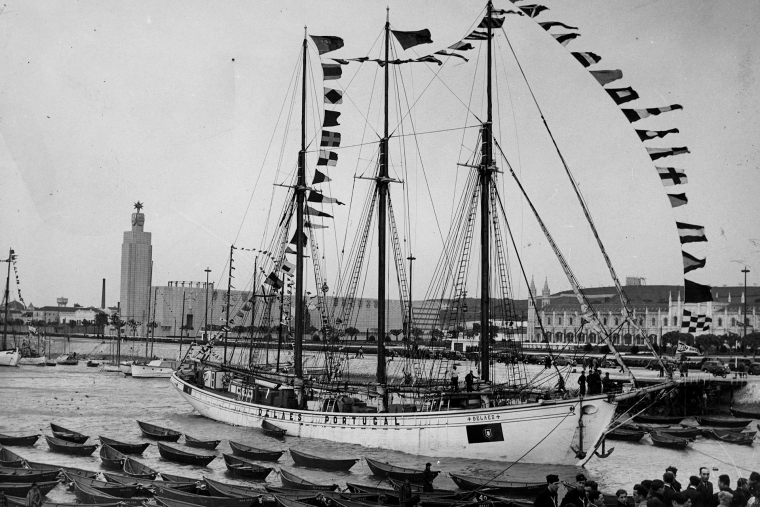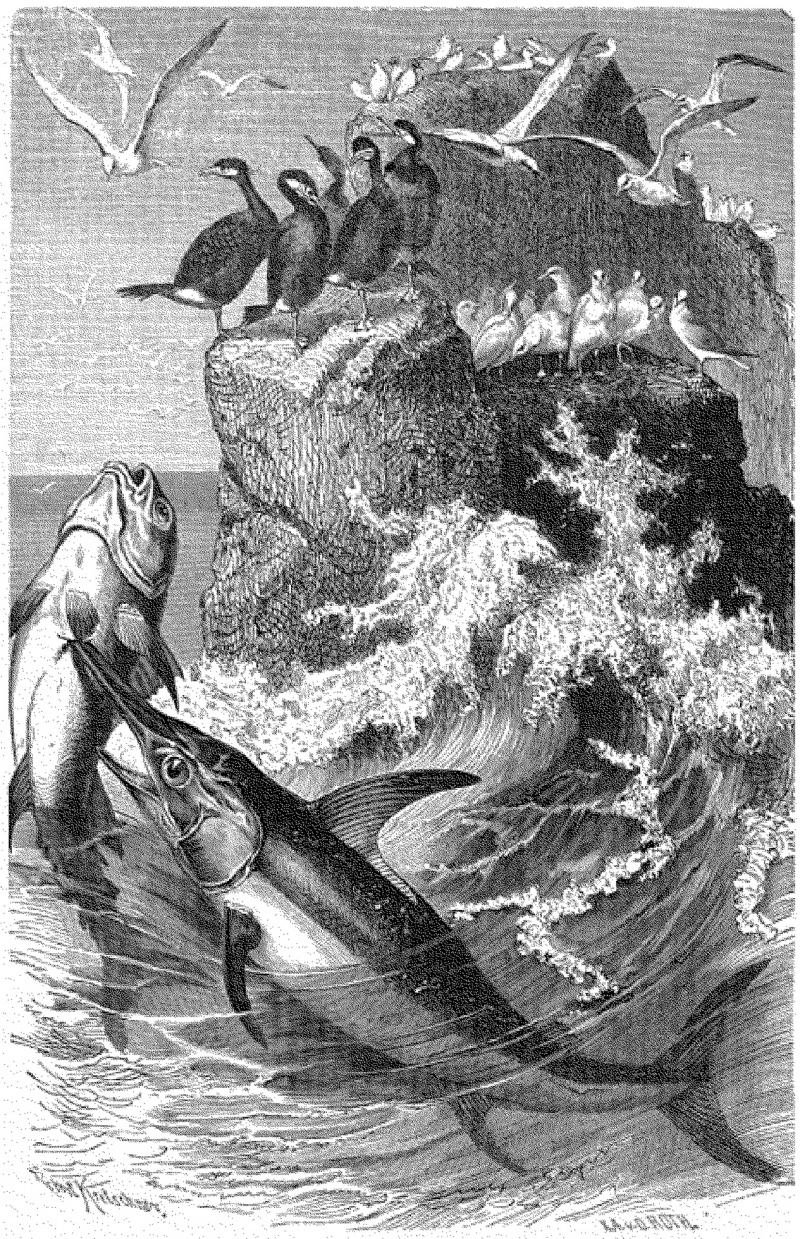
Eduardo Iglésias, unbuilt design for a Gel-Nor frozen fish shop in Porto, undated (1960s). © Faculdade de Arquitectura da Universidade do Porto / Centro de Documentação de Urbanismo e Arquitectura (FAUP/CDUA).
The Built Environment and Marine Ecosystems
There is a hidden relationship between the built environment and marine ecosystems. This architectural design for a trendy 1960s frozen fish shop reflects the changes in policy relating to the Portuguese consumption of fish. The government decided to shift its previous focus on canned sardines and salted codfish to follow the prevailing European trend of distributing and eating frozen fish. While this meant that different forms of fishing – the increased use of trawling – would exert ecological pressures in new fishing grounds, it also had repercussions for the urban landscape in the cities, with pop imagery replacing the old-style hanging of codfish in storefronts.
— André Tavares
|
André Tavares is an architect and head of the publisher Dafne Editora. He was editor-in-chief with Diogo Seixas Lopes of the magazine “Jornal Arquitectos” (2013–2015) and in 2016 co-curator of the 4th Lisbon Architecture Triennale, The Form of Form. His book The Anatomy of the Architectural Book (Lars Müller/Canadian Centre for Architecture, 2016) addresses the crossovers between book culture and building culture. He currently works as a researcher at Escola de Arquitectura da Universidade do Minho, in Guimarães, and as a consultant for Garagem Sul Architectural Exhibitions, in Lisbon.
|
The series of workshops Architecture Follows Fish aims to understand the architectural phenomenon happening on the shore as the consequence of both the natural and the unnatural dynamics of the sea. It brings together architects, scholars, reporters, biologists, and authors who have dealt with a range of subjects relating to Fishing Architecture. This series of workshops is a collaboration between maat, CCB Garagem Sul, and the Fishing Architecture research group, and is an offshoot from the exhibition Our Land is the Sea: The Sensitive Construction of the Coastline (CCB Garagem Sul, 10/03–09/08/2020).
|







